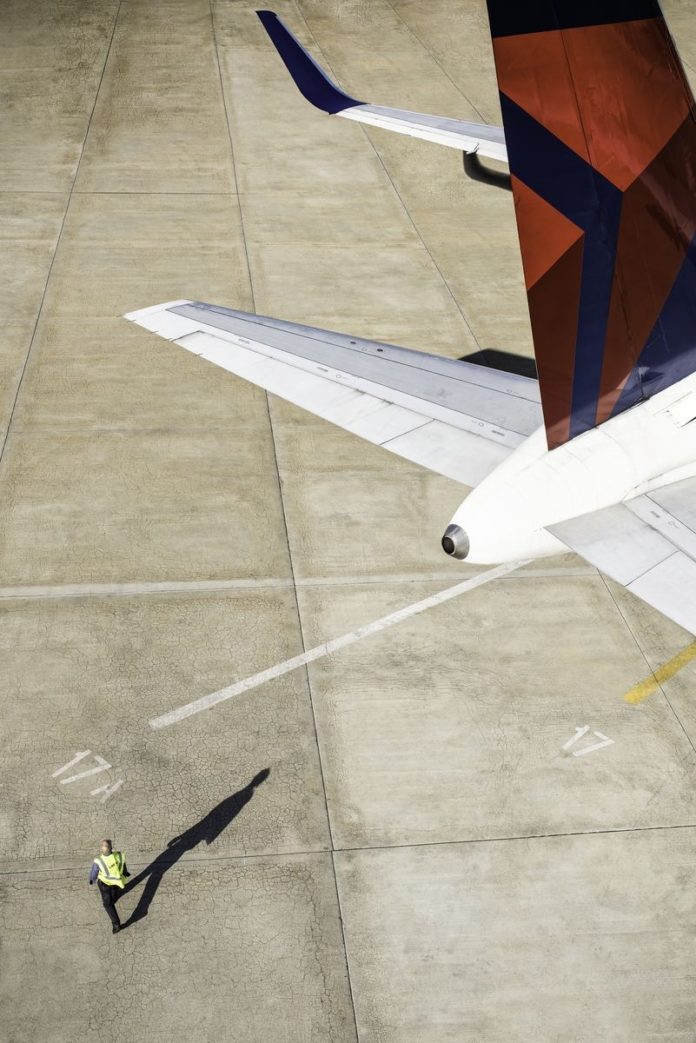Last year, pilots at Delta Air Lines and Southwest overwhelmingly rejected proposed contracts and then elected union leaders who led them through earlier contract scuffles.
The message was loud and clear: It’s time for payback after years of sacrifice.
After pilots at American, the largest U.S. carrier, agreed to a long-term deal with hefty raises a year ago, some 34,000 pilots at the three next-biggest carriers moved to collect a larger part of now-record profits flowing into U.S. airline coffers. That strategy, based on pattern bargaining that unions have used for decades across many industries, is now taking shape.
“We’ve made some good strides, but they’ve not been enough,” said John Malone, chairman of the Delta chapter of the Air Line Pilots Association (ALPA). A Boeing 767 captain based in Atlanta, Malone took office in September, assuming the role he held more than a decade ago. Across the United States, the most senior pilots earn, on average, $209,000 per year, while new first officers make an average of $55,000. Their unions want double- digit raises.
Delta pilots consider their last true wage increase as dating back to May 2004, under the final contract negotiated before jet fuel prices spiked and the financial crisis sent the industry tumbling. Ultimately, United, Delta, Northwest, and American all filed for bankruptcy, triggering tremendous financial pain for employees, not to mention a wave of airline consolidation.
That was then. Today, the remaining four large airlines are posting robust profits, despite tepid U.S. economic growth and a drop in average domestic fares. Pilot wages have returned to levels not seen since the peak earning years of 2000-2001-though minus roughly 15 years of inflation, said Kit Darby, a consultant in suburban Atlanta who tracks pilot pay.
“They’re back to the same numbers, but they’re down the inflation rate,” said Darby, who retired as a Delta pilot in 2007. As the highest-paid airline workers apart from senior management, pilots bore the brunt of concessions made during years of deep losses, he said. Fliers at the large carriers saw wage cuts of well over 30 percent, along with losses in medical benefits and work rules. Most of the bankruptcy reorganizations also wiped out pension plans.
Delta boasts frequently about its reliability-161 days last year with no mainline flights cancelled-and pilots say they have played a critical role in delivering those results. Late last month, Delta pilots sent the company a new proposal, with raises totaling nearly 40 percent over three years and a collection of demands the company will probably want to counter. The pay rates are based on aircraft type, years of service, and designation as a first officer or captain.
“The pilots made a disproportionate contribution,” Darby said of the bad old days. “They would like to get some of that back, to get even.” Still, he said, the rank and file will probably have to settle for restoring past cuts over multiple contracts: “If you’re trying to make up 14 years of inflation in a year, that’s not going to work.”
For example, a senior Delta captain earning about $248,000 annually in 2000 would have seen his income increase to $342,000 in 2015, had it kept pace with inflation.
Delta spokesman Morgan Durrant said the airline is reviewing the union proposal and looks forward to “beginning a new set of negotiations to reach a sustainable agreement that recognizes our pilots’ significant contributions to Delta’s success.”
At United, 12,000 pilots will vote this month on a two-year contract extension reached in November, two months after the company replaced Chief Executive Officer Jeff Smisek with a more conciliatory Oscar Munoz. The tentative agreement offers a 13 percent increase this year, followed by raises of 3 percent and 2 percent in the next two years.
If approved, the contract would set United pilots’ pay above that of peers at Delta and American. Under the agreement, the top rate for a 12-year United captain would increase from $270.25 per hour to $305.39 per hour as of February 2016, to $314.56 in 2017, and to $320.86 in 2018.
Delta pilots’ rates are currently about 11 percent below the average pay for American’s 15,000 pilots, according to the Delta ALPA chapter. One part of the United agreement will allow United pay rates to “snap up” if Delta pilots reach a deal by 2018 that offers better compensation than the United pilots’ contract.
At Southwest, pilots just elected a new leader, Jon Weaks, who said his 8,300 members are “disillusioned and bewildered” by management after three years of fruitless talks, now overseen by the National Mediation Board. Weaks also held the post of president at the Southwest Airlines Pilots’ Association in 2001-2002.
The union and airline will meet separately with federal mediators on Feb. 2 for a status conference to update their positions. Craig Drew, Southwest’s senior vice president of air operations, said via a spokeswoman that the company is “hopeful” of reaching an agreement with pilots this year.
In November, Southwest pilots rejected a tentative pact, in part because of a provision allowing the carrier to market flights with other airlines, Weaks said in an interview on Wednesday. Such “codeshare and interline agreements,” common across the industry, allow airlines to sell seats on other carriers and to transfer passengers, offering service to destinations they don’t serve.
Such accords can also allow an airline to grow without hiring new pilots.
Weaks, who will mark 26 years as a Southwest pilot on Feb. 1, said the contract didn’t provide pilots with enough say on codeshares or interlines. “How would it have been enforced, given the loss of trust with the company?” he asked.
Pilots also want Southwest to contribute more to their retirement plans, and they expect merit pay raises in any new deal. “Everybody knows there is going to have to be significant increases in pay,” Weaks said.






